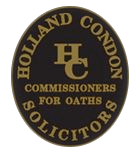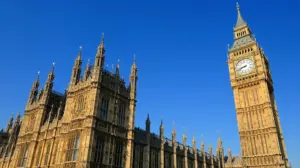- An area of Contract Law
Designed to protect consumers from misleading advertisements, faulty products and services, and to provide injured parties in a “Consumer” contract with remedies.
~ most rights are “implied terms” into contracts as laid down by custom, EU Law, legislation and Courts;
~ small consumer v wealthy large corporations (imbalance);
Who is a Consumer?
Generally speaking a consumer is defined in Irish law as a natural person who buys goods or a service for personal use or consumption from someone whose business it is to sell goods or provide services. By law, you are not a consumer if you: –
- receive goods as a gift;
- buy goods for commercial purposes (i.e. you will be using the goods for commercial and not private use);
- buy goods for private use that are normally used for business purposes;
- buy goods from an individual who is not in business (i.e. you buy a car from an individual whose normal business is not selling cars);
~ Consumer Law main areas
- Sale of Goods Act, 1893, as amended by
- Sale of Goods & the Supply of Services Act, 1980
- Consumer Protection Act, 2007
- EU Law is very active in this area of consumer contract regulations. Take note of Unfair Terms in Consumer Contracts Regulations, 1995.On 14th June 2014,the European Union (Consumer Information, Cancellation + Other Rights) Regulations 2013 came into operation and give effect to EU Directive 2011/83/EU.
~ Sale of Goods & Supply of Services Act, 1980
Defines a contract for the sale of goods as one where seller agrees to transfer ownership of goods to a buyer “for a money consideration” called a price.
- Sale contract not mortgage or loan;
- Transfer of goods not land or shares;
- Price – there must be one. So cashing in “loyalty tokens/points” for a product is not a sale;
The Act implies a list of “terms” to sales contracts in the course of business as opposed to “private sales” (2 consumers selling to each other) –versus- business/trader selling to private consumer (buyer). Most of these implied terms only apply to consumer contract, though some apply to private sales.
Following terms implied in Consumer Contracts: –
- Seller has “title” to goods = Vendor owns them & no loan or HP on them;
- Goods sold correspond to “description” used e.g. “cashmere” see Beale v Taylor; applies to private sales & consumer sales;
- Goods of “merchantable quality” seen as what a reasonable person would accept as reasonably suitable taking account of price, description, durability, conditions. Even if they are not merchantable quality, buyer will not succeed if defect brought to his attention or defect was noticeable.
Merchantable quality also means item(s) is safe to use. Grant case.
- “Fit for purpose required” ~ if buyer expresses the purposes for why they are buying the goods, then duty to provide goods that fit Baldry case;
- “Goods sold by sample”, must correspond with sample and buyer must have opportunity to compare the sample.
Supply of Services – extends rights to services and also goods supplied with the service are subject to the “implied terms”. As regard the service (e.g. car service) in contracts where supplier is acting in course of his business, then: –
- He must have necessary skill;
- Supply service with care;
- Use sound materials;
- Supply the service within reasonable time & price, if they are not specified.
Remedies for Breach of Act
- Consumer can cancel/repudiate contract +====> gets refund;
- Repair;
- Replacement
~ Consumer Protection Act, 2007 (CPA 2007)
= implements EU directive on unfair commercial practices. It introduces a general duty on all business to trade fairly and applies to all contracts between traders and consumers.
- Prohibited Practices = unfair commercial practices and lists over 30 practices considered unfair e.g. “closing down sale”; putting adverts in papers that look like editorials and not adverts; failing to run the competition that promoted the sale of the goods;
- Misleading Practices are deemed offences i.e. price, Country of origin, method of manufacture, quality of product, quantity, specification. Tesco prosecution;
- Aggressive Practices = harassment, coercion or undue influence e.g. time share sales people;
Act creates criminal offences. Also civil offences where consumer or NCA can sue for damages.
N.C.A. – National Consumer Agency
- Established in 2007 and given statutory footing by CPA 2007;
- Now merged with Competition Authority under Department of Enterprise, Trade & Innovation;
- Functions
- To promote & protect the interests & welfare of consumers;
- To enforce the relevant statutory provisions including by summary prosecution;
- To encourage compliance;
- To investigate suspected offences; and
- To refer relevant cases to the Director of Public Prosecutions.
- List method of enforcement – Prosecution, Complaince Notice, Undertakings, Prohibition Orders, Fixed Notices.
Consumer Rights 2015
In late 2014, the Irish Government published a consultation paper on proposed legislation to consolidate the law on consumer rights. You have 1893 Act and 1980 Act, 2007 Act and Consumer Credit Act 1995 with host of Regulations. Department of Justice have been seeking views from interested parties and the public on what needs to be added/amended with a view to introducing a Consumer Rights Act.
– HOLLAND CONDON SOLICITORS KILKENNY




